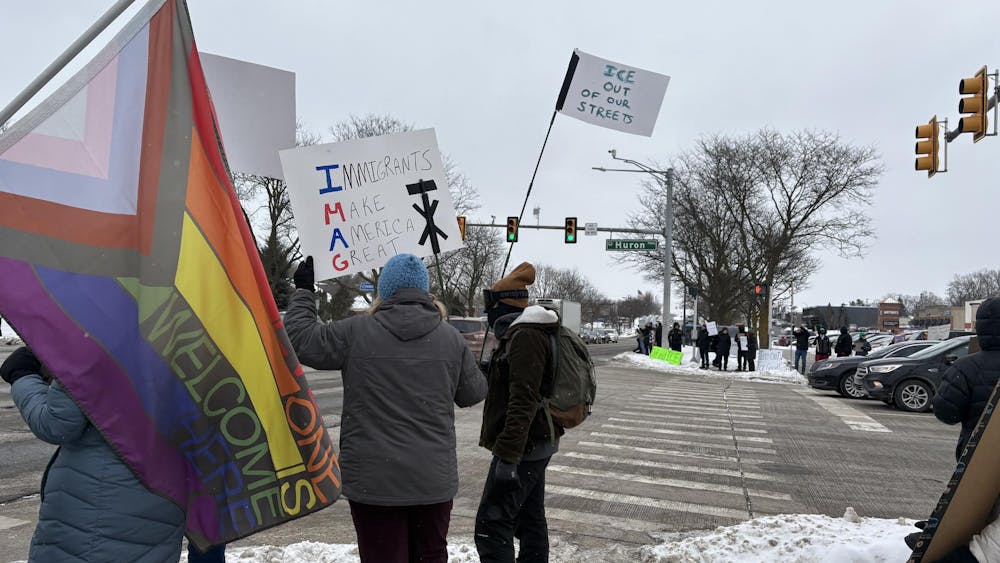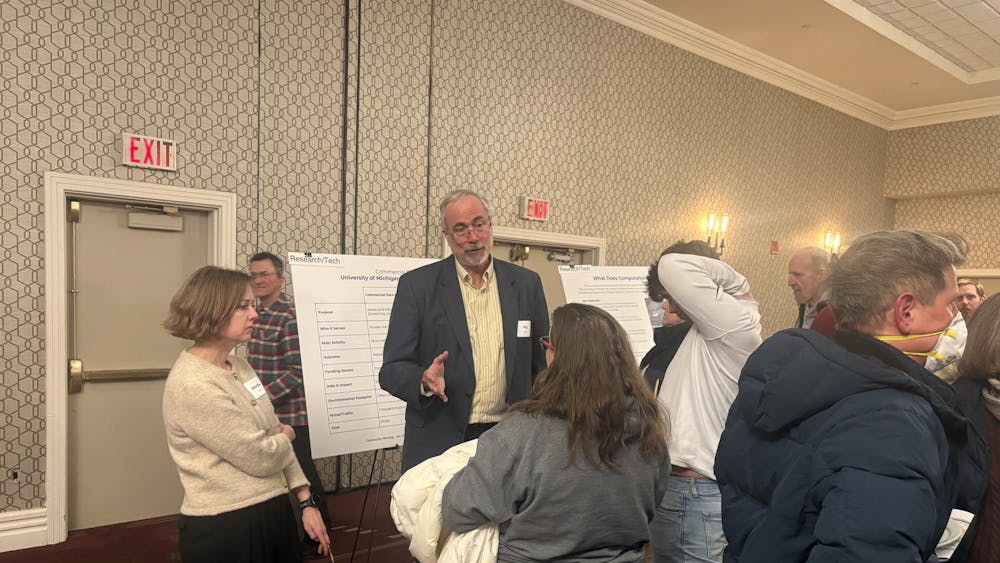Renowned author, activist and journalist Mona Eltahawy spoke on her book, “Headscarves and Hymens,” right wing and Middle Eastern misogyny, and how she draws inspiration from the Black Lives Matter movement and Say Her Name Monday in McKenny Hall.
The Women’s Resource Center brought in the Egyptian feminist to give a lecture and lead a discussion.
The question and answer portion gave opposing sides the opportunity to have a back and forth with Eltahawy and brought different views to light.
Eltahawy said what she wants to crush is the patriarchy and its pillars – what she called the trifecta of misogyny. The trifecta consists of the state, the street and the home.
Namely, the “Mubarak at home.” With that term, she connected the trifecta to the revolution in her homeland, Egypt, which at its beginning involved impeaching the corrupt leader of the nation, Hosni Mubarak.
On top of her trifecta, Eltahawy expressed her disdain and fight against fascists, the Sisi regime, the Muslim Brotherhood and the Christian Republicans of the United States that she calls the Christian Brotherhood.
Before speaking on her experience in Egypt, which involved her getting beaten and sexually assaulted, Eltahawy brought up her admiration for the Black Lives Matter movement and the three black, queer women who founded it. She spoke about Say Her Name and BLM as inspirational movements and insisted that BLM is the next massive revolution of the United States.
Eltahawy expressed her joy at seeing students of color at her lecture.
“It was really important for me that many students of color were here,” she said. “Because one of the points that I try to make strongly in my talks is this idea of global or transnational feminist, and I speak as a woman of color.”
Eltahawy said in the beginning of her lecture that she wears many hats.
“I am a feminist, I’m a woman of color, I’m Egyptian and I’m a Muslim,” she said.
Being a Muslim woman and openly opposing the headscarf and face veil, she received some questions on the veil by Muslim audience members who wear the hijab, the headscarf worn by Muslim women.
Their questions ranged from the topic of backtracking what veiled women have worked for to whether or not Eltahawy finds that wearing hijab delegitimizes one’s feminism.
The session opened a dialogue and Eltahawy said it ultimately proved one of her points on Muslim women not being two-dimensional.
“I loved the pushback, especially from all the Muslim students,” Eltahawy said. “Because what I said to many of them when they asked me the questions is that it was really important for the room to see Muslim women debate and disagree because I think complication humanizes us.”
In terms of Islamic viewpoint, senior communication major Zaeem Zafar said it was informative and gave a new aspect to Islam that he hadn’t looked at before.
“But I feel that, as a Muslim, she did cross a line,” Zafar said. “There are some things that are clearly against the religion that she supports, which is fine [...] she can have her opinion and I think it’s an important dialogue to have not just here at EMU but in our Muslim communities as well.”
Psychology major and senior Brittany Hairston said it was enlightening.
“There was a lot I didn’t know about, such as the cultural aspects,” she said.
Senior Preston Johnson, majoring in language, literature, and writing, said they wished Eltahawy would have elaborated on the nuanced points.
“[S]he kept saying ‘equality and liberation,’” Johnson said. “I’m coming away with the feeling that I came to a lecture that just said, ‘if your feminism isn’t like my feminism, it’s not feminism.’”
Eltahawy said she was happy to be at EMU.
“I’ve had a great experience at EMU and I would love to come back,” Eltahawy said.









